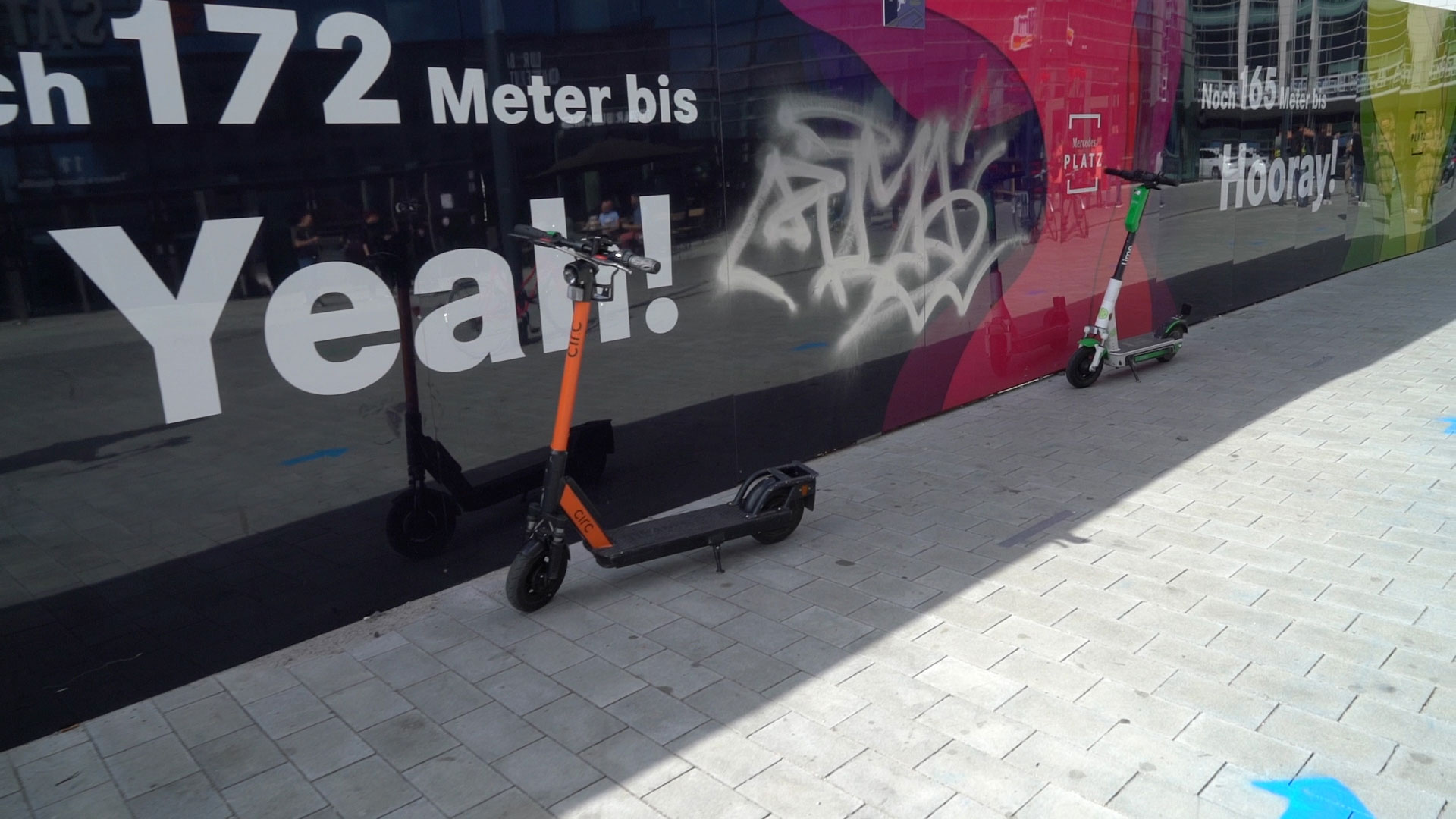e-evidence
video, 7,30 min, 2019
Does collecting data tell us something about the world or is it meaningless dataism? „Data knowledge is a limited, rudimentary form of knowledge. It cannot even make a causal connection recognizable. Big Data suggests absolute knowledge. In reality, it coincides with absolute ignorance. It is impossible to orient oneself in Big Data,“ says Byung-Chul Han.
The video installation “e-evidence“ juxtaposes a list of tech-companies in the deadpool from 2006 to 2019 by:
techcrunch.com/tag/deadpool/
and footage shot at the MediaSpree area near the Zalando headquarter in Berlin. It looks at emerging trends in the technology business and disruptive strategies.
„The term “creative destruction” became popular within neoliberal ideologies as a sort of necessary internal cleansing process to keep up productivity and efficiency. Its destructivism echoes in both futurism and contemporary accelerationism, both of which celebrate some kind of mandatory catastrophe. … Today, the term “creative disruption” seems to have taken the place of creative destruction. Automation of blue and white collar labor, artificial intelligence, machine learning, cybernetic control systems or “autonomous” appliances are examples of current so-called disruptive technologies, violently shaking up existing societies, markets and technologies.“ Hito Steyerl, Creative Destruction and Cybernetic History.
What are the consequences of disruption in everyday life and can data relating to tech start-ups in the Deadpool tell us anything about the nature of innovation, risk management and change? Addressed are the politics of platforms, architectural space, real estate development and manifestations of online business in the real world, as well as current trends in e-mobility and the sharing economy.
See also: Byung-Chul Han, Dataismus und Nihilismus.
video, 7,30 min, 2019
Does collecting data tell us something about the world or is it meaningless dataism? „Data knowledge is a limited, rudimentary form of knowledge. It cannot even make a causal connection recognizable. Big Data suggests absolute knowledge. In reality, it coincides with absolute ignorance. It is impossible to orient oneself in Big Data,“ says Byung-Chul Han.
The video installation “e-evidence“ juxtaposes a list of tech-companies in the deadpool from 2006 to 2019 by:
techcrunch.com/tag/deadpool/
and footage shot at the MediaSpree area near the Zalando headquarter in Berlin. It looks at emerging trends in the technology business and disruptive strategies.
„The term “creative destruction” became popular within neoliberal ideologies as a sort of necessary internal cleansing process to keep up productivity and efficiency. Its destructivism echoes in both futurism and contemporary accelerationism, both of which celebrate some kind of mandatory catastrophe. … Today, the term “creative disruption” seems to have taken the place of creative destruction. Automation of blue and white collar labor, artificial intelligence, machine learning, cybernetic control systems or “autonomous” appliances are examples of current so-called disruptive technologies, violently shaking up existing societies, markets and technologies.“ Hito Steyerl, Creative Destruction and Cybernetic History.
What are the consequences of disruption in everyday life and can data relating to tech start-ups in the Deadpool tell us anything about the nature of innovation, risk management and change? Addressed are the politics of platforms, architectural space, real estate development and manifestations of online business in the real world, as well as current trends in e-mobility and the sharing economy.
See also: Byung-Chul Han, Dataismus und Nihilismus.




